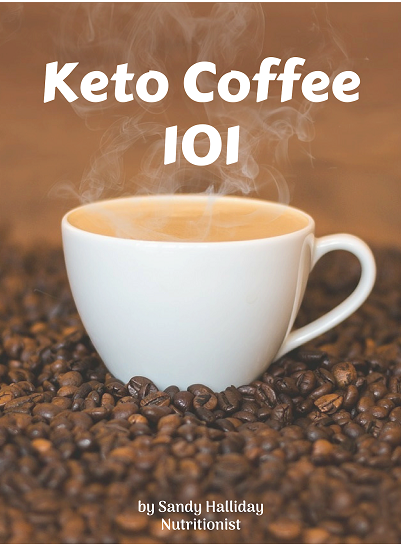When searching the Internet for the best diets to try today, you will most likely come across articles talking about anabolic diet vs keto. These two popular diets tend to have some similarities.
Just like keto, the anabolic diet is also a low carb diet. However, it’s not as restricted as keto. When you follow the anabolic diet, you will be alternating between low carb and high carb days.
But, what exactly is an anabolic diet, and is it better than keto for weight loss? Read on to find out more about the anabolic diet vs keto.
Related reading: Low Carb or Keto For Weight Loss – Which is Best?
What is An Anabolic Diet?
The Anabolic Diet is a type of diet that aims to turn your body into a fat-burning machine to lose weight. It’s a low carb diet where you alternate between low carb and high carb days.
Related reading: Best Way to Lose Weight? Try the Keto and Low Carb Switch!
Developed by Dr. Mauro DiPasquale, a licensed physician from Ontario, the Anabolic Diet is developed specifically for those who want to gain muscle mass while keeping the body’s fats as low as possible.
With the Anabolic Diet, you need to consume relatively few carbs for most of the week while alternating between low carbs and high carbs.
According to Dr. DiPasquale,
“Alternating carbohydrate intake allows you to burn more fats for fuel. This allows you to preserve as much muscle mass as possible while keeping body fat stores very low.”
How Does the Anabolic Diet Work?
The anabolic diet works on nutrient cycling – you will follow a low carb diet on weekdays, then carb up on the weekends. Alternating low carb and high carb diets will keep your body from burning mainly carbs for fuel.
Also, the higher carb days will allow the body to replenish the energy lost after vigorous exercise.
During the weekdays, your focus is to limit carb intake to less than 30 grams per day, much like the keto diet. Your caloric intake should primarily come from fats and protein.
The ideal ratio should be:
• Fats – 60% to 65%
• Protein – 30% to 35%
• Carbs – 5% to 10%
After following a low carb diet for five days, you will replenish carbohydrate stores in the body during the weekend phase. For the weekend, 60% to 80% of your calorie intake must come from carbs, 10% to 20% from fats, and 10% to 20% from protein.
Related reading: Low Carb vs. Low Calorie Diet for Weight Loss
Anabolic Diet Vs Keto Diet
Based on the above, it’s clear that the difference between an anabolic diet vs keto is that the keto diet will not require you to carb up on the weekends. Basically, the anabolic diet is like a keto diet with a twist.
It’s also a low carb diet, but it keeps the body from being in ketosis in the long term. The diet is more suited for bodybuilders and strength and power athletes. When done right, it’s very effective for gaining muscle mass.
By alternating low carb and high carb days, you will not stay in ketosis for a long time, which is done deliberately. That’s because being in ketosis longer will cause your body to burn proteins and fats, making it difficult for you to gain muscles.
Phases of the Anabolic Diet
Another thing that differentiates an anabolic diet vs keto is that it includes a “weight gain phase”. The anabolic diet will start with four weeks of maintenance. At this phase, you are not trying to gain or lose weight. You are just helping your body to get used to the diet.
After the maintenance phase, you’ll enter a bulk phase. At this stage, you need to work out vigorously as you’re trying to increase muscle mass. This is also the phase where you figure out your ideal weight, and you must not go beyond 15% above it.
After bulking, you will enter the cutting phase, where you need to start losing weight until you reach your ideal weight. In doing so, you will become nice and lean. Once you achieve that, you will cycle back to the maintenance phase.
Just like the ketogenic diet, the anabolic diet is not very calorie-restrictive. You can still enjoy eating your favorite foods while achieving lean muscle mass. But unlike keto, which prohibits you from carbing up, the carbs you are trying to avoid during the weekdays can come back to your table on weekends.
Although the anabolic diet is similar to keto in that it requires you to limit your carb intake to less than 30 grams each day, it is different from keto in many ways.
Risks of the Anabolic Diet
You must only follow the anabolic diet for a specific period, or it could lead to issues. While the diet can effectively increase lean muscle mass and lower fat stores, it is not entirely healthy.
The main downside of this diet is that it does not have enough fiber and micronutrients, mainly because of the minimal intake of fruits and vegetables.
Related reading: Fiber on Keto – Why Is It So Important?
Such imbalance could lead to a decreased intake of antioxidants, which are essential for fighting oxidative stress from exercise. Also, since the diet lacks fiber, it could cause chronic constipation and the development of unhealthy gut bacteria.
Like keto, the anabolic diet can be very restrictive, so it may not work well for everyone. The low carb days will have you eating extremely low carbs, which is quite tough.
Although people following the anabolic diet claim that their cholesterol levels improved some reviewers claim that it could increase your cholesterol. It’s always best to keep a check on your levels.
Final Thoughts
When you compare the anabolic diet vs keto, you’ll find that the anabolic diet is more suitable for those seeking to achieve fitness gains, such as bodybuilders. It will not work for competitive athletes who need to consume a higher amount of carbs.
Also, it’s not ideal for those looking mainly to lose weight. The keto diet is a better option for those trying to lose weight.
Related reading: Paleo vs. Keto: Which is Best for Weight Loss?
Since the anabolic diet is highly restrictive and keeps you from getting the essential nutrients your body needs, you must only follow it for a short period. Once you reach your goal, you can stop the diet. The keto diet and other low-carb diets may be more sustainable and healthier for general weight loss.










